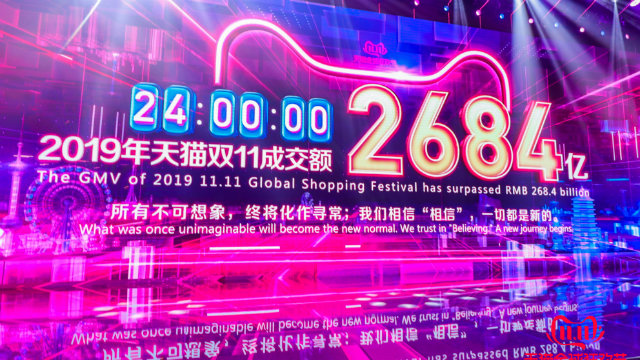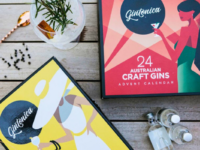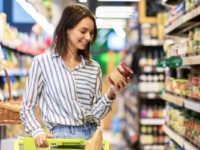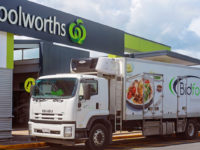
Swisse, A2, Blackmores and Bubs were among the Australia and New Zealand brands that enjoyed a very successful 24 hours as part of Alibaba Group’s 2019 11.11 Global Shopping Festival.
This year, the festival generated RMB 268.4 billion (US$38.4 billion) of gross merchandise volume (GMV) on Monday November 11, an increase of 26 per cent on the previous year’s event.
The e-commerce giant broke $US1 billion turnover in the first minute, with orders peaking at 544,000 per second.
“Today we showed the world what the future of consumption looks like for brands and consumers,” Fan Jiang, President of Taobao and Tmall said.
“We are meeting the growing demand of Chinese consumers and helping them upgrade their lifestyles, while introducing new users to our digital economy from across China and around the world.”
Australia was the fourth most popular seller on the cross-border platforms by GMV, after Japan, United States and South Korea. Swisse, Bio Island and A2 all made the top 10 of imported brands bought by Chinese consumers, coming in at second, fifth and eight place respectively.
Health and supplements brand Blackmores has proved popular amongst the Chinese consumer over the years and is one of the regulars of the 11.11 festival. Recently appointed chief executive Alastair Symington told Inside FMCG that it’s no longer enough being a strong brand in Australia to be successful in China.
“The thing that Chinese consumers are looking for more than say Australian consumers is the sheer volume and frequency of innovation and new products that come to market,” he said.
“They’re far more curious than consumers in Australia in terms of new products, they’re willing to try things at a much faster rate. So that puts a lot of responsibility on manufacturers and brands to come up with products that are not only new and interesting, but relevant for Chinese consumers.”
“Gone are the days where you can just export Australian brands to China on the back of being a good Australian brand.”
Symington has noticed certain health trends transcend borders, proving popular with both Australian and Chinese consumers.
“Looking after gut health and probiotics is a big trend we see both in Australia and in China. The other one is around stress and anxiety and sleep. Whether it’s Chinese or Australian consumers, we all suffer from certain afflictions from time to time and there are commonalities in terms of the way that the body works,” he said.
Bubs capitalises on demand for adult goat dairy
For Bubs, a company which has seen phenomenal success in China, goat dairy is now at the heart of its business, but it didn’t start out that way, founder and CEO Kristy Carr told Inside FMCG.
“That’s not where we started on day one, but that’s where the Chinese consumer traction was,” she said.
“We’ve seen it growing in China, 25 per cent year-on-year, in the infant formula space and we’re just starting to see a really big uptick in adult goat dairy.”
Last week, Bubs announced a distribution deal with Alibaba for a new adult goat dairy range, Deloraine. The Australian company wanted to take a dominant position in the market both at home and overseas.
“There’s no reason why Australia can’t play in that space,” she said.
“Most of the goat dairy going into China is being supplied out of Europe and although our milk source is more expensive, Australia has this incredible reputation in China with ‘clean and green’, premium and food safety, which is so important around infant formula and dairy, so that’s been a big part of our success I think.”
Live streaming boosts Chemist Warehouse performance
Australian pharmacy retailer Chemist Warehouse has a strong track record at Alibaba’s annual event. In 2015, it was the first cross-border retailer to achieve RMB 10 million ($1.4 million) in GMV during the 24-hour shopping event, in 46 minutes. Singles Day has become its biggest online event of the year.
On Monday, the company saw 100 million RMB ($20.8 million) in sales on Alibaba platforms in just three hours and 15 minutes. Last year, it took the company just under seven hours to achieve the same figure.
Nancy Jian, COO of Chemist Warehouse’s China division, attributed the growth to the retailer’s new storefront on Netease Kaola, an online marketplace for overseas brands that Alibaba acquired in September, and the opening of its first bricks-and-mortar store in China last month.
“It was packed with people and customers had to line up to get into the store. We believe the potential will be huge here,” Jian said about the store, where the retailer kicked off its Singles Day campaign last weekend.
“The environment has been quite different to last year,” Jian told Inside FMCG noting that Chemist Warehouse did more live streaming to drive traffic and sales this year, rather than just relying on the platforms to drive traffic.
“Our team did [a] live-streaming marathon leading to Singles Day, and we also worked with a lot of KOL [key opinion leaders] to push more sales,” she said. KOLs are like social media influencers in China.
A day to celebrate singles
The 11.11 festival was initialled marketed towards single people as a way for “young millennials want to celebrate themselves”, Maggie Zhou, managing director Australia and New Zealand at Alibaba Group explained at the launch event in Sydney on Monday.
“We invited 27 merchants to participate in the [first] Singles Day Shopping Festival… the performance, and the result of the event was good…
RMB 52 million,” Zhou said.
As a result, more and more brands wanted to participate the following year and from there the festival grew legs. This year the festival featured over 200,000 brands and offered more than one million new products.
Zhou said “stimulating consumption demand and supporting lifestyle upgrades in China” were key focuses of this year’s festival.
Alibaba also committed to contributing to a greener society this year by converting 75,000 locations into permanent recycling stations and offering express pickup for used cardboard boxes and wrapping in the aftermath of the festival.
















